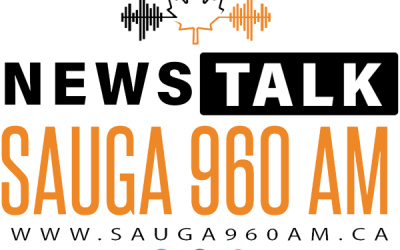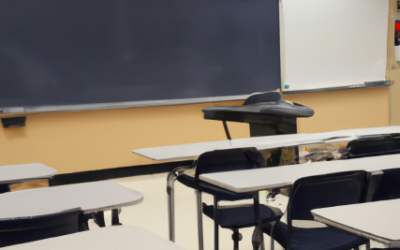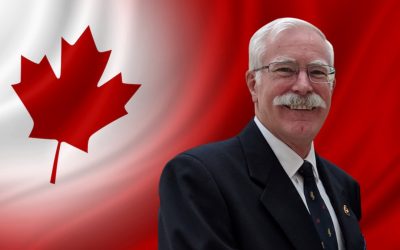The inklings that much of the educational dogma being taught at teachers’ college might not actually work in schools began to form even before Michael Zwaagstra set foot in a classroom of his own.
It wasn’t that the young student-teacher felt he knew better than his University of Manitoba faculty of education professors, or that the overconfidence of youth had taken hold. It was more of a feeling that the in vogue, so-called "progressive" ideologies and unwavering but nebulous theories about how best to teach our kids simply wouldn’t prove practical when staring at a class full of uninterested teenagers.
"When I took subjects outside the education faculty, it was great because I was actually learning about the subjects in question," he says. "But I remember thinking in my education classes that what we were learning — the de-emphasis on conveying knowledge in favour of becoming more of a ‘guide on the side’ –just didn’t jibe with what I thought would make sense."
Ten years on, Mr. Zwaagstra is now a high school social studies teacher at Green Valley School in Grunthal, Man., a small town about an hour southeast of Winnipeg. He’s had plenty of time to test the education philosophies he was force-fed while at university. His conclusion? They don’t work, and we will continue to fail our kids if we don’t change the way we teach and the way public education systems are administered.
Mr. Zwaagstra has collected his grievances in What’s Wrong With Our Schools and How We Can Fix Them, a new book he co-authored with two of his former professors at the University of Manitoba’s education faculty, Rod Clifton and John Long.
As its title suggests, the book attempts to provide what the authors call "common-sense solutions" in short chapters designed to provide parents with a crash-course in the contemporary Canadian classroom. The book touches on a number of controversial practices that have made headlines recently, including no-fail and no-test policies, the spread of "edu-babble" in curricula and a diminishing of teachers’ authority in the classroom.
The most significant hurdle facing students, Mr. Zwaagstra argues, is a pervasive anti-knowledge bias that resists the teaching of specific, common content. The "child-centred learning" philosophy expects teachers to tailor instruction to the individual needs of each student while making the experience "fun," instead of teaching facts–the building blocks he believes should be in place before higher-level concepts can be taught.
"There are some extremely long curriculum guides and you’d think, ‘Boy, there’s a lot of stuff in here kids are supposed to know.’ Then you read them and you can’t find any examples where students are told to read certain books or certain authors," says Mr. Zwaagstra, who is also a research associate at the Frontier Centre for Public Policy and a city councillor in Steinbach, where he lives with his wife and four young sons. "Instead you get these long process-oriented explanations where students will read, write, listen, use a variety of texts to do this and that. It’s just so wishy-washy."
He says the quality of textbooks has followed suit, with recent publications being noticeably "dumbed down" when compared to those written two or three decades ago.
Tailoring teaching to each student, meanwhile, makes it difficult to benchmark performance, Mr. Zwaagstra says. "We should have more regular testing, both at the classroom level and also in the standardized form. It makes sense, for example, that certain grade levels should be writing standardized tests to find out students’ reading levels. Then we can actually make decisions about what to do."
Standardized tests have long been a source of controversy in Canada, with some provinces spending millions to administer them. In Mr. Zwaagstra’s home province of Manitoba, the former NDP government of Gary Doer slashed most funding for standardized tests in 1999, making them optional before eliminating them almost entirely.
The politicization of education, with successive governments promising to "fix" the system, makes education susceptible to fads, Mr. Zwaagstra says. And when fads take hold, such as the ever-popular emphasis on developing students’ "higher-order thinking skills," teachers struggle to focus on the basics.
"Most professors in the faculties of education have adopted, to some degree or another, this romantic, progressive approach to education. It’s this approach that says we don’t want to focus on the content of learning, we want to focus on the process."
Mr. Zwaagstra says he longs for the days when teachers weren’t afraid to be subject matter experts, when students were expected to learn what was taught to them.
"There should be direct and focused instruction, and that includes things like spelling and grammar. The system should not be dependent on the students deciding for themselves what they will learn."
The "powerless teacher" is a symptom of a greater problem, he says: a consolidation of power within the adminstrative branches of education systems. "You get all this micromanagement from the top, and teachers are told what to do and are monitored to ensure they’re doing it, but we’re not measuring the final product — student performance. It’s completely backwards."
A lack of empowerment of individual schools also contributes a lack of choice within most public boards, with most pupils consigned to the school within their local catchment area no matter what programs are offered. In Edmonton, by contrast, the public school board has allowed schools to specialize in music, sports or drama, with principals given substantial control over budgets. Alberta’s standardized testing system ensures students are learning common material.
In his own classroom, Mr. Zwaagstra says he attempts to balance direct instruction and more progressive techniques when necessary, an approach that colleagues or parents have not resisted.
"Teachers have a pretty good idea what they’re doing and the reforms that work are actually very simple," he says. "Make choice more prevalent in the system. That way, parents can choose the school their kid goes to. Measure where kids are at so that way we can see if the learning is happening. Make sure principals have the ability to actually change what’s going on in the school.
"You do those basic things and you won’t need a complete new philosophy of education."


